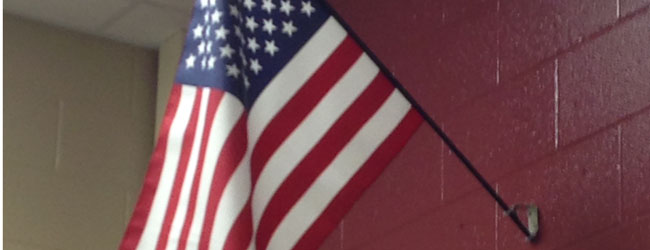On Sept. 11, 2001 a group of terrorists known as Al Qaeda hijacked two airplanes and crashed them in to the World Trade Center in New York City, NY. There was also two other airplanes that were hijacked that day; one plane crashed into the Pentagon and the other crashed into the ground near Shanksville, Pennsylvania.
About 125 were killed in the Pentagon, 250 victims died in the plane crashes, 2,606 in the towers. These casualties added up to a total of 2,996. Nearly all of the victims were civilians.
The reason Al Qaeda attacked us was partially because of our presence in Saudi Arabia. Al Qaeda didn’t want us in Saudi Arabia; this was due to Osama Bin Laden’s interpretation of the Prophet Muhammad that talked about the need to ban the permanent presence of infidels in Arabia.
In 1996, Bin Laden issued a fatwa, or legal judgment, which called for American troops to be removed from Saudi Arabia.In the 1998 fatwa, Al Qaeda wrote a statement about the United States.
“For over seven years, the United States has been occupying the lands of Islam in the holiest of places, the Arabian Peninsula, plundering its riches, dictating to its rulers, humiliating its people, terrorizing its neighbors and turning its bases in the Peninsula into a spearhead through which to fight the neighboring Muslim peoples,” Al Qaeda’s statement read.
Bin Laden also hated us for our support of Israel since he believed that the expansion of Israel is one of the greatest crimes and now you are the leaders of its criminals. Bin Laden thought that the creation of Israel was a crime, which had to be dealt with. He claimed that the United States would pay the price and pay for it heavily.
When the United States was attacked on Sept. 11, 2001, they were brought together as a nation. After the attacks, people from all over came to the site of the attacks and helped by volunteering their time and financial resources to support the efforts of rebuilding what we had lost, whether it was a building or a family.
Bin Laden accomplished his goal of putting fear into Americans, but he didn’t get us to pull out our troops immediately. In fact, the United States ended up declaring a War on Terror, which caused them to send more troops overseas and occupy the territories Bin Laden wanted them banished from. Although there have been great strides in removing the threat of terrorist groups from the world, some view the attack as largely unproductive as we are still fighting terror today.
Even though the terrorist attack happened twelve years ago, it still affects American citizens today in far-reaching ways. The nation has developed a warning system for the possibility of an attack in which we are almost always on high alert for terrorists attacks.
Every time someone travels on an airlines, they have to go through thorough screenings to determine we have no dangerous equipment. These screenings, although positive in helping provide safety, have angered many people by infringing on their civil rights.
Also, if you got on a plane before 9/11 you most likely would not have had a care in the world about who you were sitting next to or what they were doing. However, because 9/11 and the recognition that all of the hijackers were of Middle Eastern descent, there is increased racial tension. Now when people get on a plane, they look to see who else is on the plane. If they see someone of Middle Eastern decent they immediately become more anxious. This is the case for some DHS students when they board planes.
“I become nervous just because of what happened on 9/11,” junior Daniel Magno said.
However, other students like juniors Andrew Rettig and Ellen Lavigne, regardless of 9/11 don’t pay that much attention to who boards the plane with them. They don’t see a reason to stereotype a group of people with similar physical characteristics and moral beliefs just because of events caused by a few bad seeds.
But a student has a combined opinion. They personally don’t think about whose on the plane with them but they understand why some people would be confused.
“I’m pretty sure a lot of the American population would be, but personally no,” junior Matt Christian said.
Not every single person of Middle Eastern descent wants to cause harm to Americans. That’s just racial stereotyping. It is actually a vocal minority of middle eastern Muslims that is extremist, seeking a violent end to American involvement overseas. The media further engages this racial tension by only reporting about how bad it is overseas. Some argue that the media does this to build support to send more troops.
This event has been displayed in a very biased manner on television. Some argue that citizens at home never hear about how many Iraqi civilians are killed or harmed due to our presence. This causes Americans to forget that people live in these parts of the world, too.
The Sept. 11 terrorist attack will also have far reaching effects into our future. Since the United States declared a war on terrorism and not a specific target, it spent a large amount of money on a war when it may not have had that money to spend in the first place. This put them into a whole lot of debt, which future generations will have to bear. Also, it propagated the thought that the United States was the world’s police force. This will have an effect on their military commitments for a long time, as they decide what involvement we will have with world affairs.
Although the terrorist attack on Sept. 11, 2001 lasted only one day, it has had lasting affects like racial stereotypical backlash, possible civil rights infringements with security and economic problems transferred on to further generations. One could truly conclude that nothing has been or ever will be the same.


